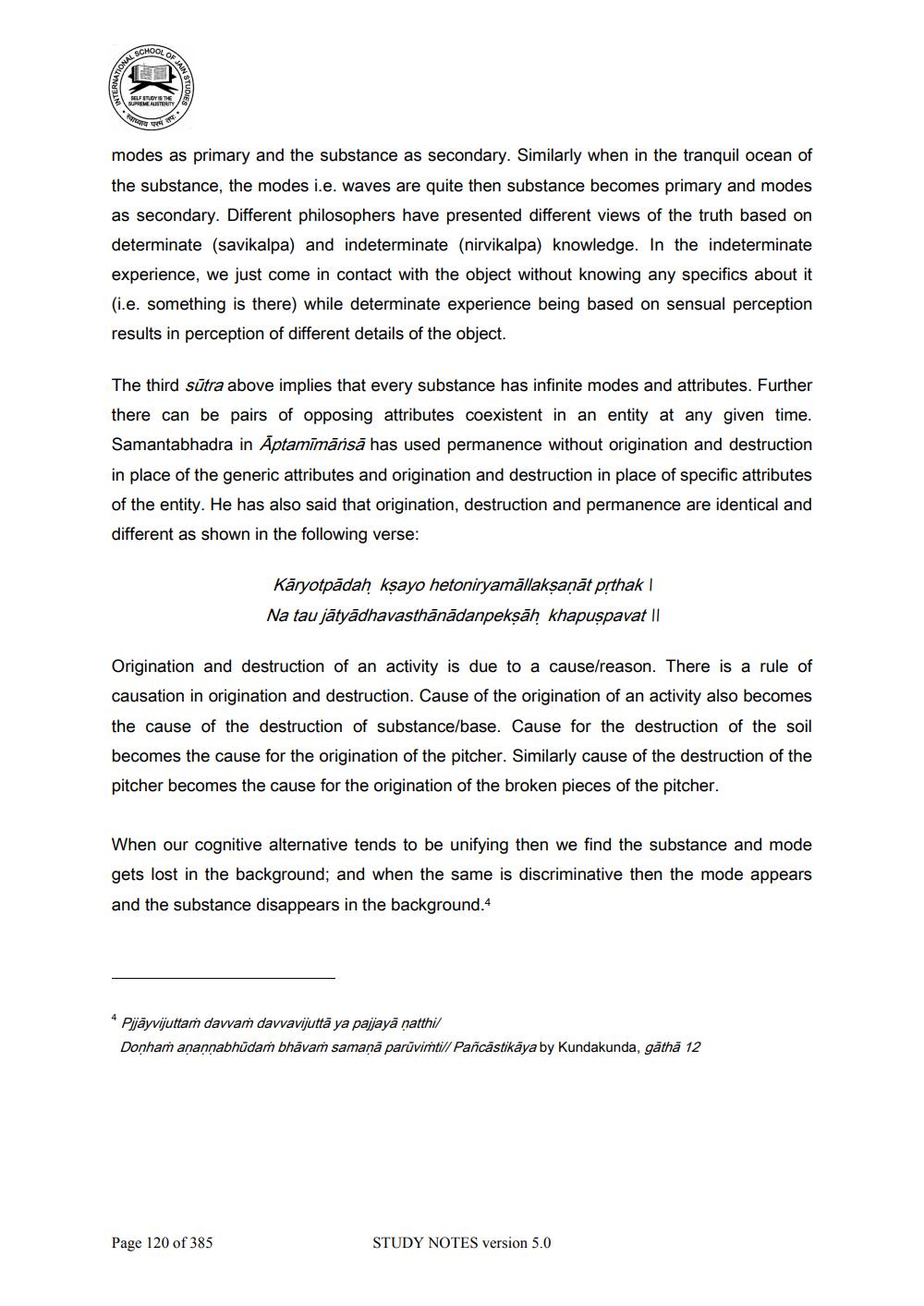________________
SCHOOL OF
TIONAL
SELF STUDY IS THE SUPREME AUSTERITY
पाध्याय परम
UM STUDIES
modes as primary and the substance as secondary. Similarly when in the tranquil ocean of the substance, the modes i.e. waves are quite then substance becomes primary and modes as secondary. Different philosophers have presented different views of the truth based on determinate (savikalpa) and indeterminate (nirvikalpa) knowledge. In the indeterminate experience, we just come in contact with the object without knowing any specifics about it (i.e. something is there) while determinate experience being based on sensual perception results in perception of different details of the object.
The third sūtra above implies that every substance has infinite modes and attributes. Further there can be pairs of opposing attributes coexistent in an entity at any given time. Samantabhadra in Aptamimārsā has used permanence without origination and destruction in place of the generic attributes and origination and destruction in place of specific attributes of the entity. He has also said that origination, destruction and permanence are identical and different as shown in the following verse:
Karyotpadah kṣayo hetoniryamallakṣaṇāt prthak Na tau jätyädhavasthänädanpekṣaḥ khapuspavat |
Origination and destruction of an activity is due to a cause/reason. There is a rule of causation in origination and destruction. Cause of the origination of an activity also becomes the cause of the destruction of substance/base. Cause for the destruction of the soil becomes the cause for the origination of the pitcher. Similarly cause of the destruction of the pitcher becomes the cause for the origination of the broken pieces of the pitcher.
When our cognitive alternative tends to be unifying then we find the substance and mode gets lost in the background; and when the same is discriminative then the mode appears and the substance disappears in the background."
Pijäyvijuttam davvam davvavijuttä ya pajjayā ṇatthi/
Donham aṇannabhūdam bhāvam samaṇā parūvimti// Pañcastikaya by Kundakunda, gāthā 12
Page 120 of 385
STUDY NOTES version 5.0




